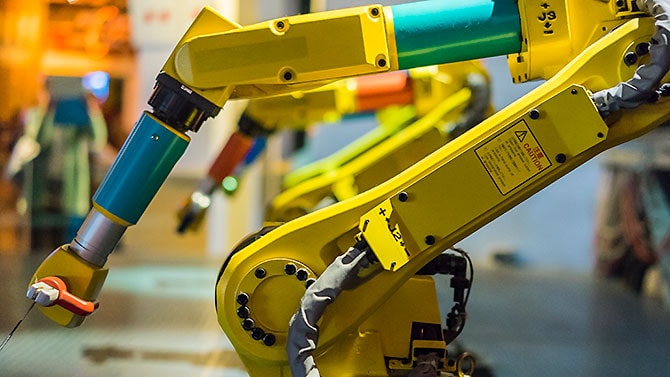Overview
Smart Manufacturing will play an instrumental role within the industrial manufacturing sector— and it is likely that the COVID-19 pandemic will only highlight the value to be gained through greater automation and smarter, more resilient supply chains. The unique advantages of smart manufacturing in automating the factory floor and incorporating new services into all kinds of products will make it a must-have in the post-COVID-19 era.
The pandemic is primarily a public healthcare problem, but one with immense immediate implications for businesses and for economic, fiscal and monetary policy. The health threats could disappear within months — or persist for years. This virus is both accelerating powerful existing trends (such as automation and inequality) and slamming the brakes on trends that had, until very recently, possessed tremendous momentum (such as globalisation). By recognising the challenges confronting the world, internalising the lessons of the pandemic and deploying the tools and technologies at hand, we can chart a new, more adaptive course. PwC has organised the most disruptive trends that companies face into an ADAPT framework. The five forces that comprise the framework are: asymmetry (increasing wealth disparity); disruption (changes wrought by technology); age (demographic shifts); polarisation (increased nationalism and populism) and trust (declining confidence in institutions).

However, deploying these technologies in what looks to be a challenging economic environment will require a different mindset — one that fully takes into account the key role of technology in unlocking value. These can be achieved through using technology to achieve greater automation, smarter supply chains and increasing customer satisfaction and loyalty.
Companies can focus on several key advantages to get the most out of 5G investments and 4IR technologies in a challenging economy. These include:
- Greater automation. The advent of 5Ghas ushered in many more options for businesses that want to automate their operations, boost productivity and increase agility. Optimally, every aspect of 4IR should be employed: robotics,predictive maintenance, advanced analytics, artificial intelligence and robotic process automation.
- Increased Merger and Acquisition activity. Businesses planning strategic acquisitions to boost their 4IR capabilities may find that, where impacted by slowdowns, there will be lower valuations on acquisition targets.
- Smarter supply chains. Global CEOsconcerned about trade conflicts are changing their supply chain and sourcing strategies. 4IR technologies combined with 5G networking will enable companies not just to shift or shorten supply chains but to make them smarter and faster. Consider what’s possible with connected information from the IoT, real-time sharedblockchain ledger records and AI-poweredanalytics: a more agile and transparent global footprint and swifter customisation,innovation and response times.
- Higher revenues and customer loyalty. Businesses are increasingly using 5Gservices to develop new 4IR-drivenproducts and services — and embed4IR technologies into legacy analogue offerings — to create new revenue streams.

Most manufacturers in Ghana, are only now beginning to envision the ‘factory of the future’ and are yet to appreciate the immense benefits that 4IR technology could bring to the industry, not to think of 5G. For many companies in more developed countries where smart manufacturing is being implemented, two major factors have constrained their adoption of smart manufacturing – cost of implementation and complexity of technology. As entities in Ghana consider this radical shift in manufacturing technology, we must not lose sight of the economic and socio-cultural impact of smart manufacturing in terms of reduction in employment levels, as well as the need for the creation of an enabling environment (technological and telecom infrastructure). As compelling as it is to imagine the factory of the future, achieving it is no easy task. One might ask “Is smart manufacturing the future for us?” or “Do we embrace it and retool staff who will be freed up by the new ways of working? Would your company lead, follow or become redundant?”











